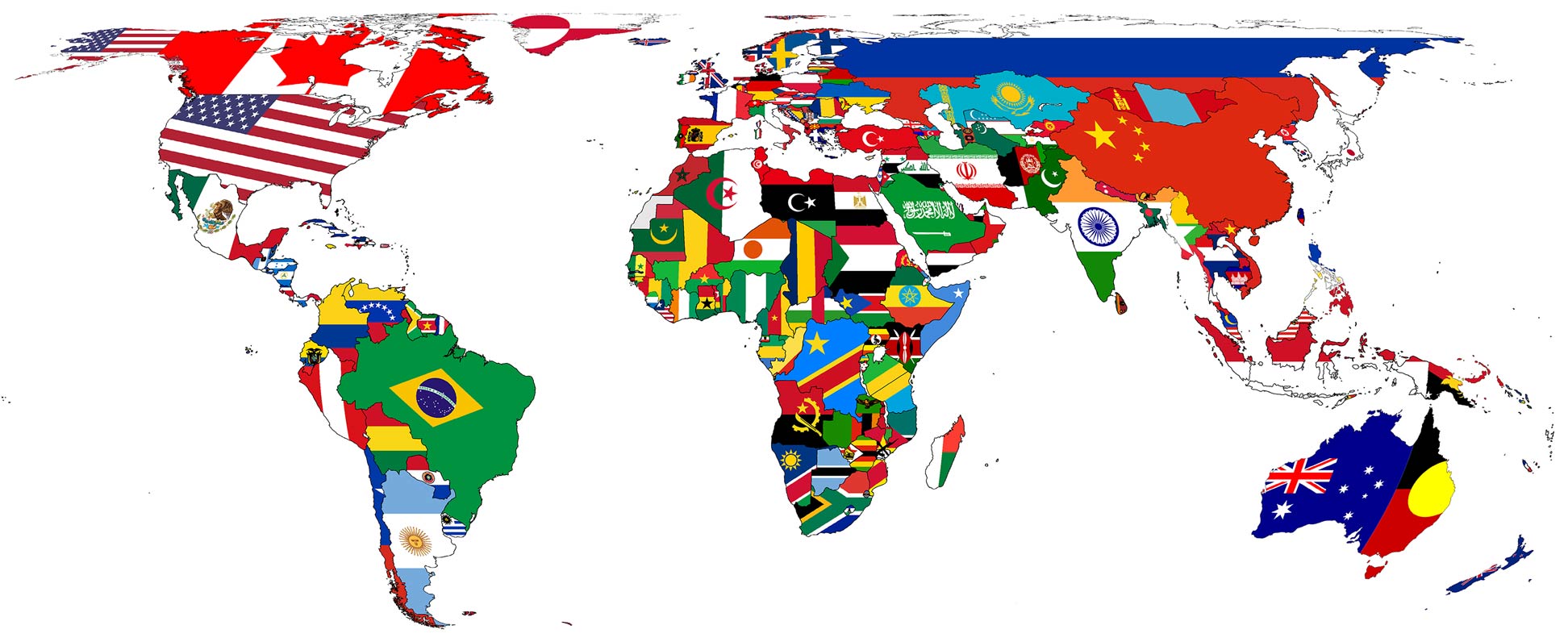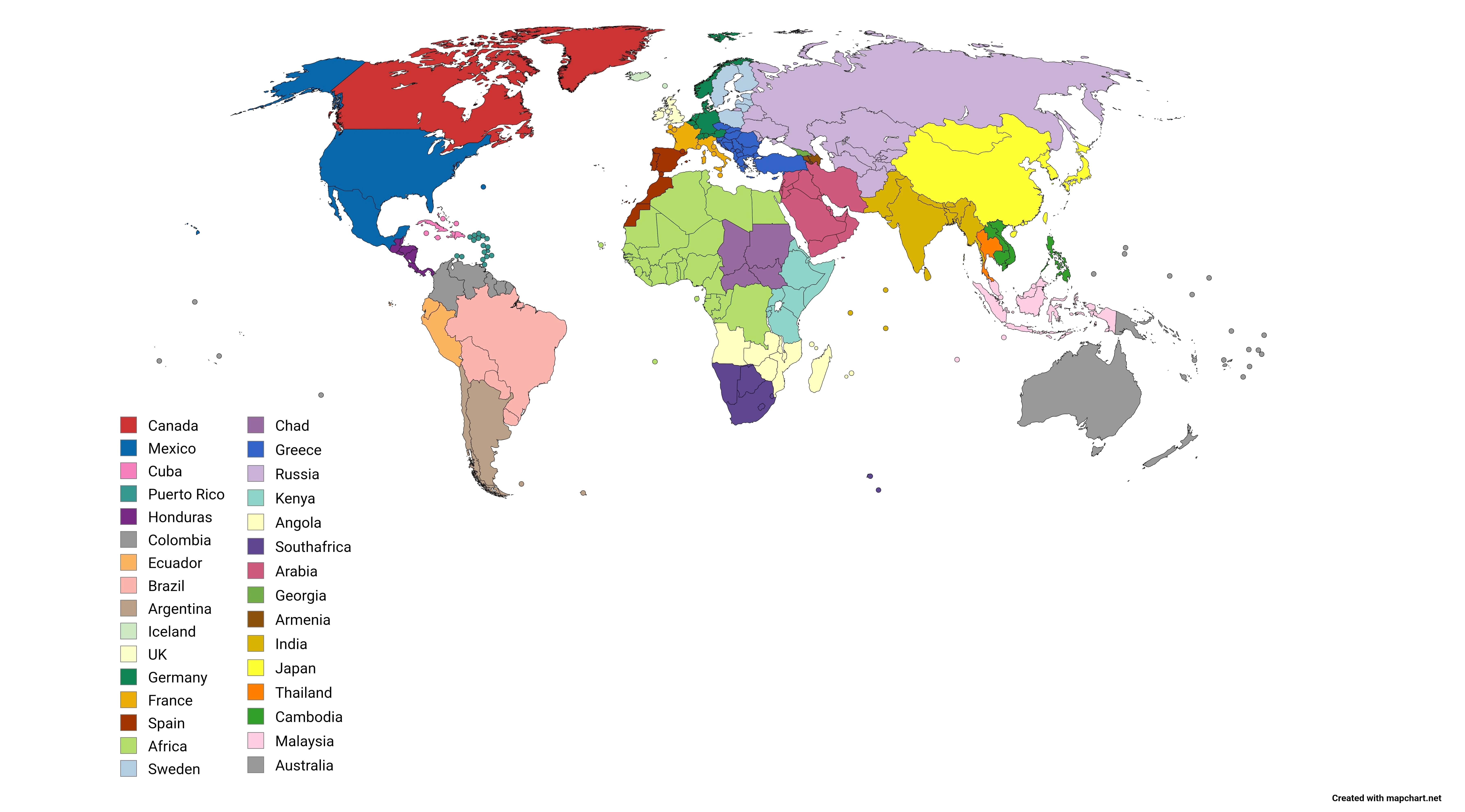In our world today, where political divisions sometimes feel so very wide, a powerful idea is gaining much attention: putting the needs of our nation before any single political group. This idea, often spoken as "country over party," really speaks to a deep wish many people have for unity and common purpose. It's about finding shared ground, even when views differ greatly. We see leaders and citizens alike beginning to step forward, urging us all to remember what connects us, rather than what pulls us apart. This way of thinking, you know, is not just a nice phrase; it is becoming a guiding light for many public figures right now.
This sentiment, frankly, is showing up in various places, from election campaigns to public talks. It highlights a growing feeling that working together for the greater good should really take precedence over strict loyalty to a political team. People are, in some respects, looking for ways to bridge gaps, to find solutions that benefit everyone, not just one side. It is a call for a kind of civic spirit that values the well-being of the whole over the specific aims of a few.
This discussion will explore what "country over party" means in practical terms, looking at how various figures are embodying this idea. We will, of course, consider the challenges involved and why this concept is so important for our collective future. You will also get a sense of how this idea is playing out in the current political landscape, offering a hopeful glimpse into what might be possible.
Table of Contents
- What "Country Over Party" Truly Means
- Voices of Unity: Public Figures Embracing the Idea
- The Challenge and the Promise of Unity
- How We Can Support This Vision
- Frequently Asked Questions
What "Country Over Party" Truly Means
When we talk about "country over party," it’s really about prioritizing the common good of the nation above the strict rules or goals of a political group. It means, you know, making choices that benefit all people, rather than just those who belong to a specific political side. This approach often calls for a willingness to compromise, to listen to different viewpoints, and to seek solutions that serve a broader purpose. It is, perhaps, a shift from constant competition to finding shared aims.
This idea suggests that even when people have very different political beliefs, they can still come together on things that matter to everyone. Think about things like national security, economic stability, or improving daily life for families. These are goals, after all, that should transcend partisan lines. It means looking at issues through a lens of what strengthens the nation as a whole, rather than what gives one party an advantage. So, it's almost a call for a higher form of civic duty.
It also means, in a way, recognizing that political parties are tools for governance, not the ultimate goal themselves. The ultimate goal, arguably, should always be the well-being and progress of the country and its people. This concept encourages leaders to be flexible, to adapt, and to work with anyone who shares a desire to improve things, regardless of their political colors. It’s a very simple yet profound idea, really, when you think about it.
Voices of Unity: Public Figures Embracing the Idea
Across the political scene, several prominent figures are, you know, actively promoting the idea of putting country over party. They are trying to move past the usual political divisions that sometimes seem to get in the way of progress. These individuals, from different backgrounds, share a belief that working together is just essential for our nation's health. Their actions, very clearly, show a willingness to step outside the expected partisan lines.
Kamala Harris and Bipartisan Appeals
Vice President Kamala Harris has, in fact, been quite vocal about this very principle. She recently returned to Ripon College, where signs displaying "country over party" were visible, making a clear appeal to Republicans and undecided voters. She has, you know, spoken about the importance of putting "country over party" and has pledged to be a president for all Americans. Harris has also said, "I pledge to you to be a president who actively works to unite us around our highest aspirations." This commitment, quite honestly, highlights a desire to bridge divides.
Her efforts also include highlighting her own bipartisan record, contrasting it with what she describes as divisive politics. This approach, you see, aims to show that cooperation is possible and, indeed, necessary. It's about finding those points of agreement that can bring people together, rather than focusing only on disagreements. Her message, therefore, is one of hope for a more unified path forward, trying to bring different groups into a shared conversation.
Liz Cheney: A Principled Stand
Liz Cheney, a former U.S. Representative, has also, you know, become a notable voice for this idea. Her public statements and actions have shown a willingness to break with her own party when she felt it was necessary for the good of the nation. She has, frankly, made overt appeals to Republicans and undecided voters, encouraging them to consider principles over strict party loyalty. Her stance, arguably, has made her a symbol for some of what "country over party" can look like in practice.
Her actions have, in a way, sparked conversations about what it means to be a principled public servant. She has chosen a path that, at times, has been politically difficult, but she has maintained her focus on what she believes is best for the country. This sort of commitment, you know, can inspire others to think beyond traditional political boundaries. It really speaks to the idea of standing firm on what is right, even when it is not popular within one's own group.
Unexpected Alliances and Support
The current political climate has, quite interestingly, led to some unexpected political friendships and alliances. Longtime partisan officials are, you know, breaking with their usual allies and endorsing based on principle rather than party. For instance, a trio of Kansas Republicans, including a onetime chair of the Senate Labor Committee, have thrown their support behind Vice President Kamala Harris in her 2024 efforts. This is, after all, a pretty clear example of putting country over party.
These kinds of shifts, you know, show that people are willing to look beyond party labels when they feel the stakes are high. It's about finding common ground with individuals who might typically be on the other side of the political fence. These moments, honestly, highlight a desire for collaboration and a belief that shared values can transcend partisan divides. It's a sign that, perhaps, the idea of unity is gaining some real traction among a wider group of people.
Josh Shapiro on the 2024 Election
Pennsylvania Governor Josh Shapiro, standing with three longtime Republicans, recently said that the 2024 presidential election comes down to "country over party." This statement, you know, underscores the seriousness with which some leaders view the current political moment. It suggests that the choice is not just about which party wins, but about the direction and values of the nation itself. His words, very clearly, echo a broader sentiment that is gaining strength.
This perspective, you know, encourages voters to consider what truly serves the nation's best interests, rather than simply following party lines. It's a call for a deeper consideration of leadership qualities and policy impacts. When leaders frame elections in this way, they are, in a way, inviting people to think more broadly about their civic responsibilities. It really highlights the idea that some decisions are bigger than any single political group.
The Challenge and the Promise of Unity
Putting "country over party" is, to be honest, not always an easy path. It often means making difficult choices that might not be popular with one's own political base. The pressure to conform to party expectations can be very strong, and breaking away can sometimes carry significant political costs. Yet, despite these challenges, the promise of unity and effective governance remains a powerful motivator. It is, perhaps, a long and winding road, but one worth traveling.
The promise of this approach is a political system that works better for everyone. When leaders prioritize the country, they can, you know, make decisions based on evidence and shared goals, rather than just partisan ideology. This can lead to more stable policies, a stronger economy, and a more cohesive society. It's about building bridges, rather than continually digging trenches. This is, you know, a very hopeful vision for our collective future.
Moreover, this shift can help restore public trust in political institutions. When people see their leaders working together, even across divides, they may feel more confident that their interests are being served. This, you know, can lead to a more engaged and less cynical citizenry. It's a way of showing that, at the end of the day, our shared identity as a nation can truly be stronger than our political differences. This commitment, in some respects, can change things for the better.
How We Can Support This Vision
Supporting the idea of "country over party" is something we can all do, not just political figures. It begins with how we engage with political conversations in our own lives. Choosing to listen to different viewpoints, seeking common ground, and focusing on solutions rather than just problems can make a big difference. It's about fostering a spirit of mutual respect, even when opinions clash. This is, you know, a very practical way to make an impact.
We can also, you know, encourage our elected officials to prioritize national interests over partisan ones. By supporting candidates who demonstrate a willingness to work across the aisle, we send a clear message about what we value. This means looking beyond party labels when we vote and considering the character and actions of individuals. It's about rewarding those who show a commitment to collaboration and unity, you know, in their public service.
This Memorial Day, for instance, we are reminded of the commitment to set aside differences and put country over party, just as millions of Americans have done throughout history. This spirit of shared sacrifice and common purpose is, arguably, what truly strengthens a nation. By redoubling that commitment in our daily lives, we can help build a more cohesive and effective society. You can learn more about civic engagement on our site, and you can also find out how to link to this page bipartisan efforts.
Frequently Asked Questions
What does "country over party" truly mean in politics?
It means prioritizing the overall well-being and common good of the nation above the specific aims, beliefs, or strict loyalty to a political group. It often involves a willingness to compromise and to work with others, regardless of their party affiliation, to achieve shared national goals. It's about focusing on what helps everyone, you know, in the long run.
Who are some political figures advocating for "country over party"?
Several figures are speaking out for this idea. Vice President Kamala Harris has, you know, emphasized its importance and pledged to unite Americans. Former U.S. Representative Liz Cheney has also taken a stand, appealing to voters based on principle. Governor Josh Shapiro of Pennsylvania has likewise framed the 2024 election as a matter of country over party. You also have figures like Matthew Dowd, founder of "Country Over Party," who promote this idea.
Why is putting "country over party" considered important for a nation?
It is important because it can lead to more effective governance, better solutions for national challenges, and a stronger, more unified society. When leaders focus on the country's needs, they can, you know, make decisions that benefit a wider range of people, not just one segment. This approach can also help restore public trust in political systems and encourage more productive dialogue among citizens. It's about building a more resilient future, you know, for all of us.



